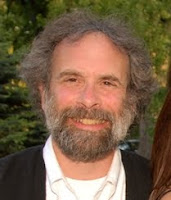
By Jeff Zuckerman, Dissertation Specialist
Contributing writers (that would be me) should check the schedule of deadlines so that they do not find out while on vacation they have 2 days to submit a blog post.
Speaking of which: If you’ve taken A Practical Course in APA Style, you know why I used the numeral 2 in that sentence instead of the word two. (Hint: See APA 4.31.)
But would you know how to directly quote or paraphrase that first sentence following all APA style guidelines? In fact, one of the hardest tasks for many of my students in Center for Student Success courses I’ve taught has been quoting a source and paraphrasing in correct APA style. Yet it’s one of the most important skills students need to master.
Here are some basic guidelines:
1. You can’t just copy a phrase from a source without using quotation marks to show it’s a direct quote. That would be plagiarism.
2. When you are directly quoting, you are required to use quotation marks and show the page number or paragraph number from the original source.
3. The APA manual (2010) “encourages” authors to include a page reference when paraphrasing (p. 171).
4. The page number goes inside parentheses (the abbreviation p. or para. followed by a space and then the page number).
5. When you cite an author, all you need is his or her last name followed by the year.
So how would you quote the first sentence in this piece? Here are two ways:
a. Zuckerman (2011) realized that contributors “should check the schedule of deadlines so that they do not find out while on vacation they have 2 days to submit a blog post” (para. 1).
b. Contributors “should check the schedule of deadlines so that they do not find out while on vacation they have 2 days to submit a blog post” (Zuckerman, 2011, para. 1).
As your instructors have probably told you, your writing should be more than a series of direct quotes. Instead, you should try to paraphrase—that is, you should take what you’ve read and put it in your own words. And “your own words” truly means your own words, your own voice, and your own interpretation.
So how would you paraphrase that first sentence?
a. Zuckerman (2011) suggested he should have planned ahead and noticed the due date for his next blog contribution (para. 1).
b. Authors ought to pay attention to their deadlines so they do not spend their vacation in Boulder, Colorado, whipping together a post at the last minute (Zuckerman, 2011, para. 1).
As you progress in your studies, keep these time management tips--and citation rules!--in mind.
I hope you will keep sharing more posts.
ReplyDeleteYou're welcome, Markus!
ReplyDeleteThamk you very much
ReplyDeletevery educative!
ReplyDeleteThank you!
Delete